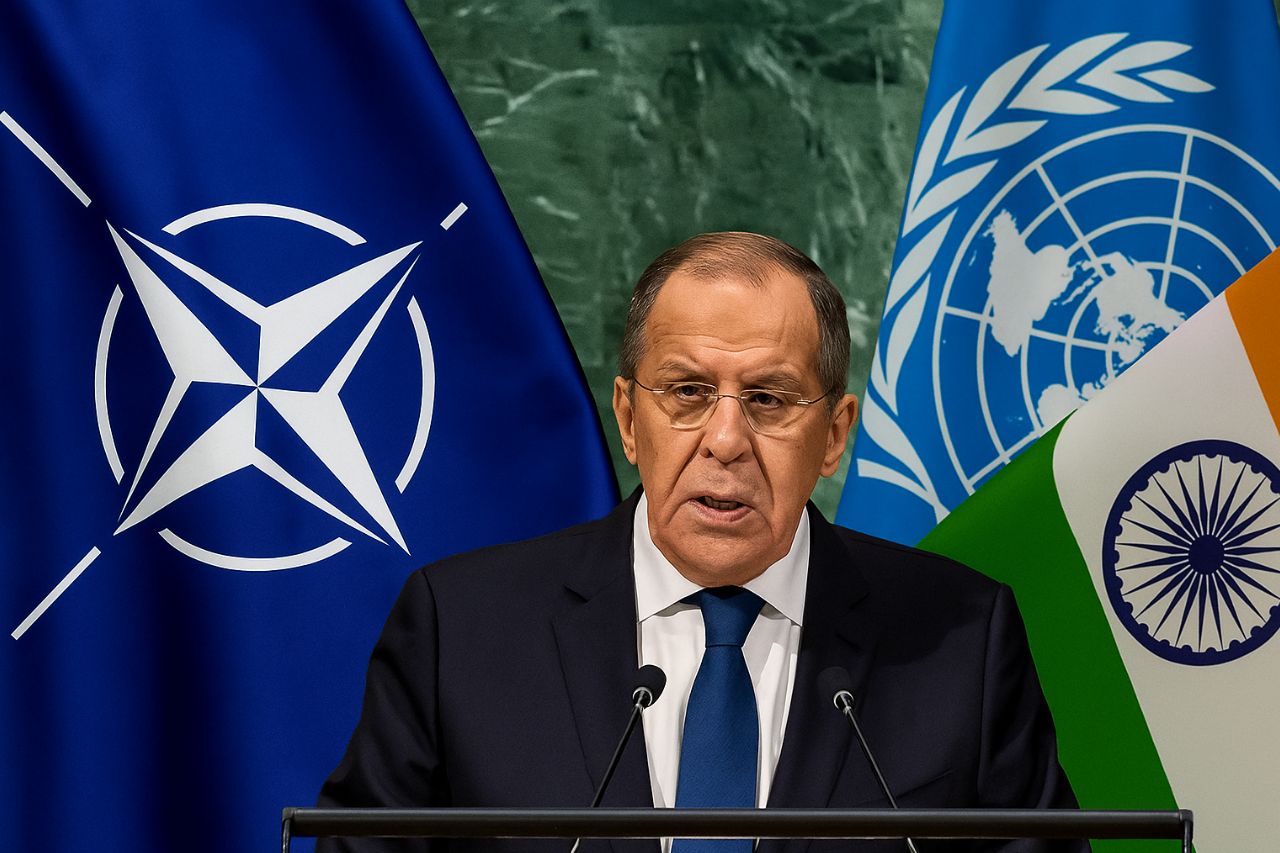Russia’s Foreign Minister Sergey Lavrov, on September 27, 2025, delivered a wide-ranging speech at the United Nations General Assembly (UNGA), warning Western powers against escalating tensions with Moscow while voicing strong support for India’s long-standing bid for a permanent seat on the UN Security Council (UNSC).
Lavrov said Russia has “no intention of attacking EU or NATO states” but cautioned that any aggression against his country would invite a “decisive response.” His remarks came against the backdrop of repeated allegations of Russian incursions into NATO airspace and Europe’s rising security concerns.
How did Russia push back at Western claims?
“Threats of force against Russia, accused of practically planning an attack on NATO and the European Union, are becoming increasingly common. President [Vladimir] Putin has repeatedly debunked such provocations,” Lavrov told the Assembly.
“Russia has never had and does not have such intentions, but any aggression against my country will be met with a decisive response.”
The comments follow a series of incidents in Northern and Eastern Europe. Denmark recently reported coordinated drone flights over its airports, which it described as the work of a “professional actor” but said there was no evidence directly linking Moscow.
Similarly, Estonia accused Russia of airspace violations, while NATO jets were scrambled over Poland to counter suspected Russian drone incursions.
US President Donald Trump has urged NATO nations to take a harder line, even suggesting that Russian aircraft should be shot down if they violate allied airspace. NATO has reiterated that it would use “all necessary military and non-military tools” to defend member states.
What did Russia say on the Israel, Gaza, and Iran conflict?
Lavrov also addressed the Middle East crisis, condemning both the Hamas-led October 7, 2023, attacks on Israel and the ongoing Israeli military campaign in Gaza.
“There is no justification for the brutal killings of Palestinians or for plans to annex the West Bank,” he said, warning that Israeli actions could “blow up” the wider region.
On Iran, Lavrov criticised the reimposition of sanctions as “illegal” after Russia and China failed to delay their enforcement. He accused Western nations of undermining diplomacy.
How did Russia show strong support for India’s permanent UNSC seat?
In a significant diplomatic signal, Lavrov underscored Moscow’s support for expanding UNSC membership to include India and Brazil as permanent members.
“Russia supports the application of Brazil and India for permanent seats,” he said, calling for reforms to reflect today’s global realities, far different from those when the UN was founded 80 years ago.
With this, Russia became the only permanent member of the UNSC to explicitly endorse India’s candidacy, boosting New Delhi’s decades-long push for reform.
India’s case has gained momentum in recent years, with backing from countries across the Global South. Mauritius’ Foreign Minister Dhananjay Ramful said India “has now emerged as a major global player” and deserves a permanent seat.
Bhutan’s Prime Minister Tshering Tobgay also voiced support, saying a reformed Council must include “deserving nations such as India and Japan.”
Is UNSC reform gathering steam?
Calls for UNSC reform were a recurring theme during this year’s UNGA. External Affairs Minister S. Jaishankar chaired a BRICS foreign ministers’ meeting on September 26, where the group reiterated its support for a “comprehensive reform” of the Council to make it more democratic and representative.
Both China and Russia have previously affirmed in BRICS declarations that India and Brazil should play a larger role at the UN, though Beijing has historically been cautious on India’s permanent membership bid.
Lavrov also highlighted the growing importance of platforms like BRICS and the Shanghai Cooperation Organisation (SCO) as “mechanisms for coordinating the interests of the developing world.”
Is the Global South’s voice growing stronger?
India, with its 1.4 billion population and growing economic clout, has long argued that the current UNSC framework does not reflect contemporary global power dynamics. Its permanent membership bid is framed as part of a broader effort by Asia, Africa, and Latin America to secure fairer representation in global governance.
With Russia’s endorsement and increasing support from smaller nations, momentum appears to be building for India’s aspirations, even as deep divisions remain among the Council’s permanent members.
